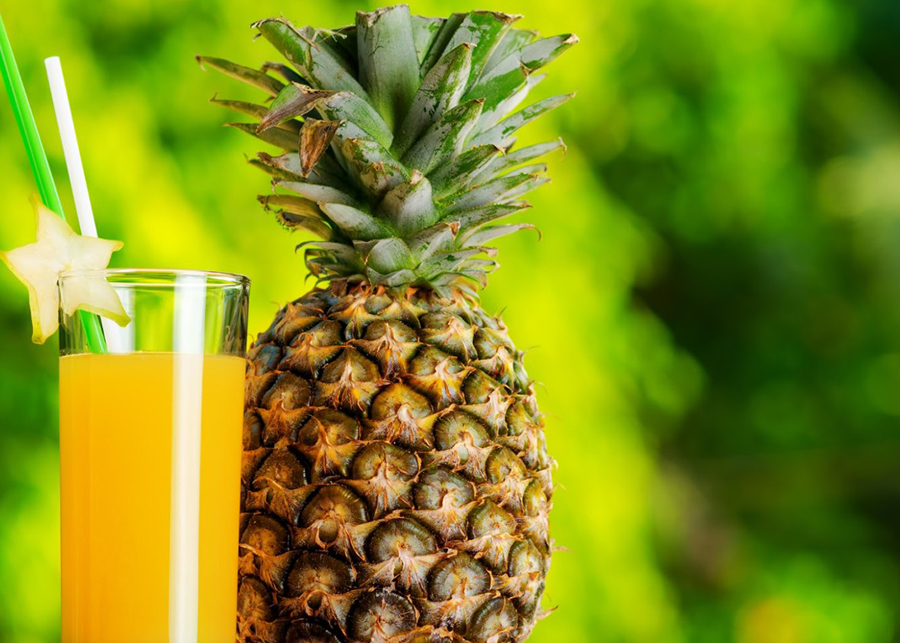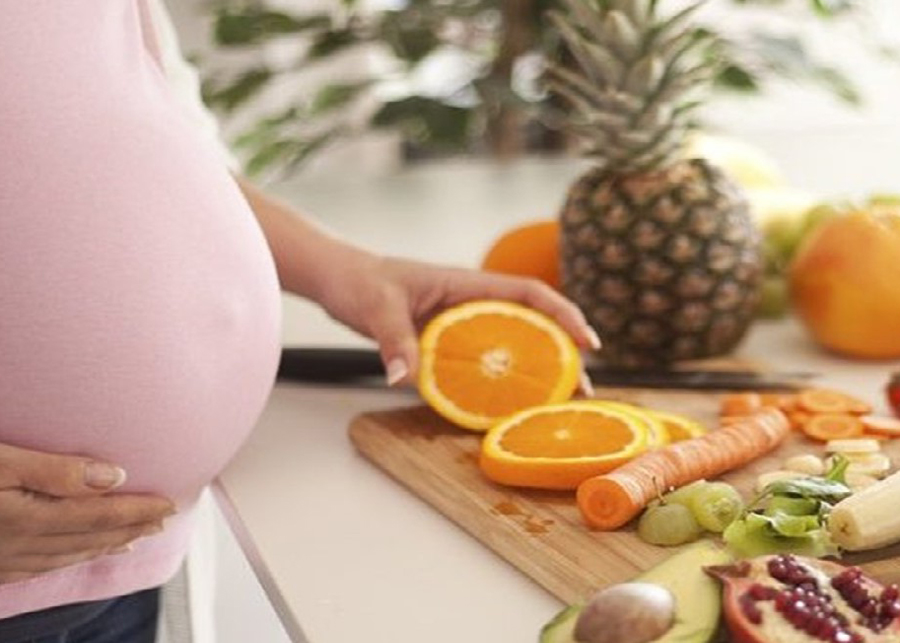Pregnant women can eat pineapple during pregnancy, but you need to follow certain rules. First of all, pregnant women should not eat eggs with pineapple because they have opposite effects on digestion and health. Eggs are a good source of protein while pineapple is a combination of water and sugar which helps our body to digest it properly. When these two are combined together in the stomach, the proteins in the eggs will absorb the available sugar in the pineapple.
If you are planning to eat pineapple during pregnancy, you need to be aware of some important points. First, you should not eat pineapple along with eggs. Eggs contain a lot of protein and pineapple is a fruit, so these two foods will interfere with digestion, absorption, and health. In addition, the fruit acid found in pineapple may destroy the vitamin C in the eggs, so you should avoid eating them together.

Bromelain
While there are many health benefits of pineapple, it should not be consumed during pregnancy. The fruit can lead to digestive problems such as heartburn, diarrhea, and dehydration. In addition, it can trigger an allergic reaction in some women. It is also best avoided by women with a history of miscarriages.
There are many misconceptions about pineapple and pregnancy. One is that eating pineapple can cause premature labour. This is not the case, though. Pineapples contain a proteolytic enzyme called bromelain, which can cause contractions in the uterus. While this enzyme is not present in the pineapple’s outer flesh, it is present in the pineapple core.
Vitamin B6
There is a debate about whether pineapple is safe to eat during pregnancy. Some people think it can lead to a miscarriage, and others say it is good for pregnancy. But some doctors say that it’s a safe fruit. There are some risks, though, and it’s best to limit your intake. Eating too much pineapple can result in gastric discomfort and heartburn. Consuming pineapple too often can also cause a miscarriage.
Pineapple contains a large amount of sugar. It’s not recommended for pregnant women with gestational diabetes or who are over weight. Additionally, pineapple can increase the occurrence of morning sickness and uterine contractions. Bromelain, which is found in pineapple, can also cause pregnancy cramps and loose motion. These symptoms can cause a woman to mistake them for labour.
Iodine
Did you know that pineapple contains iodine? However, there are many risks associated with eating this fruit. In particular, pineapple is not suitable for women who are pregnant. The fruit can cause miscarriage or complications during childbirth. It also contains a lot of salt. It is recommended for pregnant women to stick to iodised salt and avoid processed foods.
For pregnant women, the daily recommended intake of iodine is 250 mg. However, this amount may be higher than the recommended daily allowance due to changes in the body and the growth of the fetus. Physiological changes include increased glomerular filtration and stimulation of the thyroid hormone. The body also needs more energy to carry out its fetal development.
Necessity of iodine for brain development
Recent research has shown that a mild to moderate iodine deficiency in pregnant women may negatively impact the brain development of their child. Infants who are born with low iodine levels may be at risk for poor verbal and reading skills. Fortunately, pregnant women can boost their iodine levels by eating seafood and dairy products.

Iodine is a key component of thyroid hormones, which play a crucial role in brain development during pregnancy. These hormones are responsible for regulating the development of the embryonic, fetal, and postnatal brain. Iodine deficiency is one of the leading causes of preventable brain damage worldwide. Pregnant women’s iodine needs increase by 150 mg per day during the first trimester, and this requirement is even greater during the second trimester. Unfortunately, many countries do not meet their recommended iodine intake during pregnancy.
Safety of bromelain for pregnant women
Although the bromelain in pineapple can be beneficial to the health of the pregnant woman, there are some risks to the fetus. Bromelain is a substance found in pineapple that can stimulate the cervix and cause contractions in the uterus. This substance is also known to cause rashes and vomiting in pregnant women. Besides, pineapples are high in calories and are not recommended for women who have gestational diabetes.
Bromelain is naturally present in pineapple fruit and stem, but it is also sold as supplements in pill, cream, and powder form. It is also available in some grocery stores and online. If you want to take bromelain supplements, the recommended dosage is 80 to 320 mg, taken two or three times daily. However, you should consult with a health care provider before using this product. Moreover, you should not take it for more than 10 days.
Can Pregnant Women Eat Pineapple During Pregnancy? Result
In conclusion, we can say that pineapple can be eaten by both pregnant and lactating women in moderate amounts. However, do not eat the fruit with eggs or milk, because pineapple is high in acid, which will destroy certain vitamins. In addition, pregnant women should not eat the fruit too often and should take into account whether a man has been tested for sexually transmitted diseases. Moreover, people should remember that fruits are high in calories and contain much sugar and some of them contain chemical additives that may also damage health.

